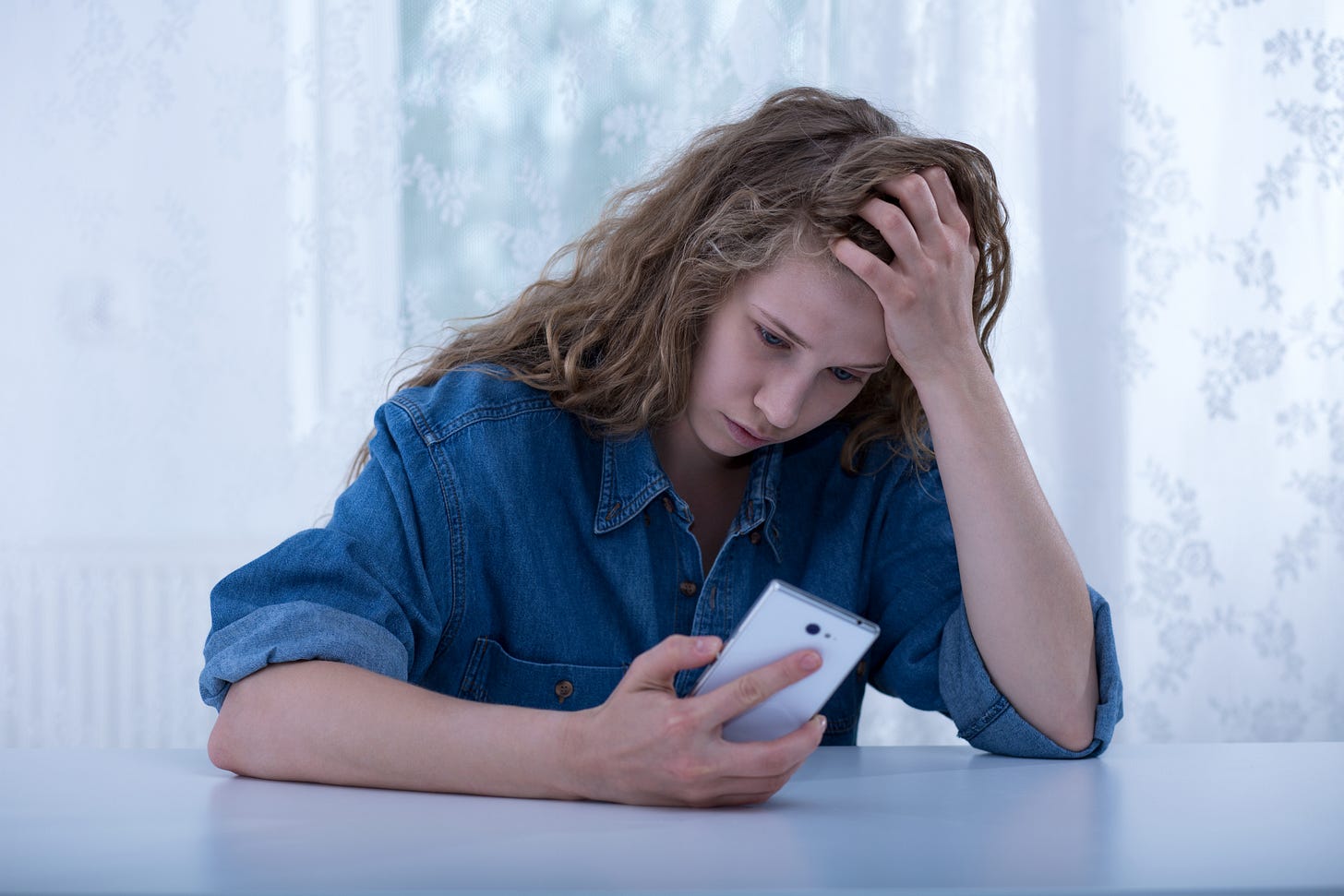Research Hit: Time Alone Increases "Threat Response" in Teenagers - Even When on Social Media
New research into teenagers shows increased loneliness and threat response when left alone
Surely, continuous social media consumption can’t be good for anyone?
Well, the research is a bit conflicting but it probably depends on how and for what rather than simple time on social media - I, for example, use it a lot to follow scientific research.
Ok, and what did this research you are reporting on do?
Well, this was, I found, a particularly good piece of research. Notably it has already been found in research that rodents become more threat sensitive in isolation but so far not in humans.
First, Emily Towner and colleagues of the University of Cambridge carefully screened teenagers from the local regions and settled on 18 boys and 22 girls who were socially connected and had no history of mental health issues.
Then they had their baseline measured which included what is known as a Pavlovian threat test which plays a loud jarring sound at the same time as an image which links the image to this negative experience. They measured biological threat responses though electrodes on fingers which measures sweat and other metrics and can measure subtle differences in stress levels.
The teenagers were then invited back twice about a month apart and spent four hours in a room alone: once offline and with only physical games or puzzles to solve, the other time they could engage in social media. They repeated the baseline tests which were then compared.
What do you think happened?
Well, you’ve already said that threat response increases - but I would have thought social media could meditate this - or maybe solving puzzles is healthier for you?
What happened is that subjective levels of loneliness increased in both scenarios but it was moderated slightly by being able to engage with social media. That’s a slight benefit to social media through the effect was not large.
Secondly the threat response increased in both scenarios by the same amount.
That’s surprising!
Yes, kind of, we are kind of designed to live together and so being alone increases perception of threat. This ironically can lead to a vicious circle: being less social and therefore being more threat sensitive making it harder to engage in positive social experiences, etc.
But for most of us it’s not that extreme?
No, many of us have social interactions and spend some time alone with social media but it is fascinating to see that time alone increase this threat response - which can translate into being more aggressive with strangers or seeing non-threatening situations as threatening.
Oh dear - so make sure to engage with real people in the real world!
Yes, and some other research has shown that it can be simply a good morning from a neighbour, or quick conversation at the bus stop that can help reduce loneliness.
Reference
E. Towner, K. Thomas, L. Tomova, S-J. Blakemore.
Increased threat learning after social isolation in human adolescents.
Royal Society Open Science, 2024; 11 (11)
DOI: 10.1098/rsos.240101




